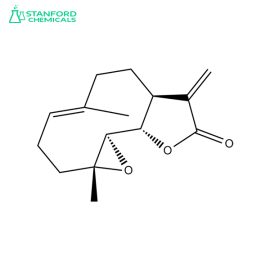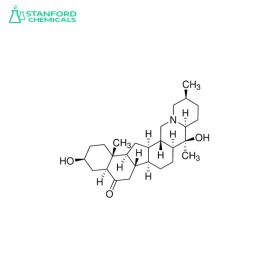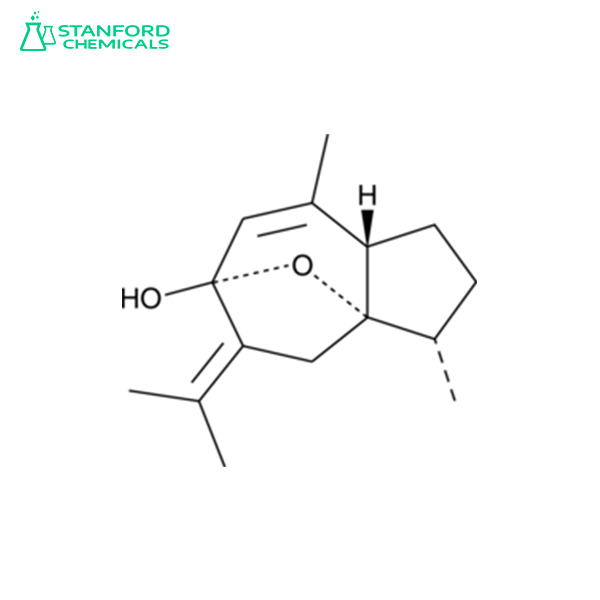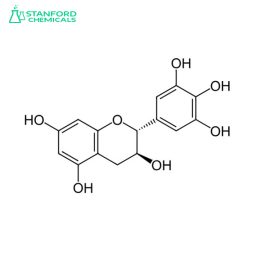Curcumenol
Curcumenol is a sesquiterpene alcohol from Curcuma zedoaria, known for anti-inflammatory, antimicrobial, and anticancer properties, and studied for therapeutic applications in managing inflammatory diseases, infections, and cancer.
Curcumenol Overview
The traditional use of Curcuma plants in herbal medicine has drawn attention to curcumenol and its potential therapeutic applications. Its bioactivities make it a subject of interest in the development of new treatments for inflammatory diseases, infections, and cancer.
Curcumenol Key Features
– Natural Source: Extracted from the rhizome of Curcuma zedoaria and other Curcuma species.
– Bioactivities: Exhibits anti-inflammatory, antimicrobial, and anticancer activities.
– Mechanism of Action: Includes inhibition of inflammatory cytokines, apoptosis induction in cancer cells, and free radical scavenging.
Curcumenol Applications
– Inflammatory Diseases: Used in research aiming to develop treatments for conditions characterized by inflammation, such as arthritis and asthma.
– Cancer Therapy: Investigated for its potential to inhibit the growth of cancer cells and induce their apoptosis, offering a natural option for cancer treatment.
– Antimicrobial Use: Its antimicrobial properties suggest applications in fighting bacterial and fungal infections, contributing to its use in traditional medicine for wound healing and infection prevention.
Curcumenol Functions
– Modulation of Inflammatory Responses: Curcumenol can suppress the activation of inflammatory pathways, reducing inflammation and associated pain.
– Cancer Cell Apoptosis: Promotes the death of cancer cells through various apoptotic mechanisms, potentially limiting the spread and growth of tumors.
– Antioxidant Activity: Neutralizes oxidative stress by scavenging free radicals, contributing to cellular protection and health.
Details

| Available Sizes | 30 capsules, 60 capsules, 90 capsules |
|---|---|
| Key Ingredient | High-quality, pure Parthenolide extract |

| Available Sizes | 30 capsules, 60 capsules, 120 capsules |
|---|---|
| Key Ingredient | High-quality Peiminine extracted from the finest Fritillaria bulbs |




Reviews
There are no reviews yet.